President’s Desk: Trustworthy Pathways in an Uncertain Future
By Gretchen E. Mullin Sawicki
 Three years ago, I tasked an incredibly bright work-study student to research a list of skill sets for jobs that don’t yet exist – skills that would take him far into the future for careers that were only just percolating but not yet defined. He developed a list of competencies that would be well suited to an unknown future- math, data analytics, communication, artificial intelligence, and computer programming.
Three years ago, I tasked an incredibly bright work-study student to research a list of skill sets for jobs that don’t yet exist – skills that would take him far into the future for careers that were only just percolating but not yet defined. He developed a list of competencies that would be well suited to an unknown future- math, data analytics, communication, artificial intelligence, and computer programming.
Little did he know that three years later, many of these skill sets absolutely mirror and apply to our unknown post-pandemic future. You need to be able to communicate information really well in a digitally transformed world; you need to analyze, assess, interpret, and communicate data balancing and basing your decision-making with objectivity; and you need to know how to use language, including computer languages, to create solutions to problems.
According to our recent research on post-pandemic proof careers, many agree that these skill sets are Mathematics, Information Technology, Digital Transformation, and Ecommerce. The similarity between his list and this one is not surprising; both focus on technical skills and communication skills to navigate successfully in our new, changing reality.
The beauty of community colleges is that you get both these post-pandemic technical skills along with the integration of “soft- skills” in your education. These “soft skills,” which are equally important, are the communication, negotiation, team-building, leadership, and self-awareness competencies that must be strong and nuanced to work effectively with people in all careers and of all backgrounds, especially in this anxious time. Associate degrees, certificates, and non-certificate programs are all built to teach these technical and soft skills. In fact, it is an accreditation requirement that we measure our success in how and what our students are learning. We review all of our programs to ensure that students have this opportunity. And, we create pathways to progress along the attainment of these credentials.
At NHTI, you are assured that when you choose a career, you will be given a clear roadmap that can traverse future unknowns. You will receive an education where curriculum will be adapted to meet change face on. You will be given direction but also flexibility in choosing your schedule to be either an accelerated super-highway or a slower, steady one. Here, your career choice is very much personalized to match your needs. If you want an interdisciplinary approach to learning, you can build your own program as my work study student ended up doing by picking and choosing the courses that complement the skills that you already have. This can be accomplished by choosing to follow a General Education or Liberal Arts degrees where electives provide you with this choice.
It is NHTI’s job to build pathways that have longevity and sustainability. This work to ensure that our programs are relevant, current and meaningful is not easy. It means continuous program improvement; it means keeping connected to our local communities, local industry needs, and readjusting and realigning our curriculum regularly. It means that you can trust community college’s mission to provide quality, caring and lasting education.


